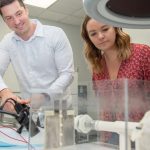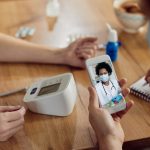How To Orchestrate Clinical Trials for Your Medical Device
Clinical trials are often viewed as one of the last steps before sending a new device or pharmaceutical product to market. While it is near the end of the process, medical device testing is iterative and cyclical. This process is designed to ensure the final product is safe and effective for the public’s use, and clinical trials are designed to expose flaws, user errors and key safety concerns.
Conducting medical device clinical trials is an important step to getting a device approved by the FDA. With the right collaborative team, the process can be smooth and efficient, setting you up for success in the market.
1. Create a Working Prototype
To successfully conduct clinical trials for FDA approval, a late-stage prototype needs to be developed. Early iterations of medical device prototypes will go through alpha testing before being sent back to engineers and designers for refinement and optimization. Alpha testing is an essential step in medical device testing as it streamlines the approval process during clinical trials.
With a second, third or even fourth iteration in hand, your working prototype will look and act as closely to the final device as possible. This allows beta testing or clinical trials to accurately test and use the device as intended and prepare you for next steps. Without a late-stage prototype in hand, medical device clinical trials become next to impossible.
2. Ensure Consistency and Limit Bias
Limiting research bias during clinical trials requires teams of researchers collaborating during every aspect of the trial. To ensure the trial, results or interpretation and analysis aren’t biased, consistency throughout the process is critical.
While medical device trials often rely on groups of researchers conducting trials in their own regard, this can lend itself to being inconsistent and with skewed data. Medical device clinical trials need to implement consistent protocols and methods that ensure each researcher goes about the study similarly and without a bias of any kind.
Endpoint adjudication committees (EAC) are commonplace for pharma clinical trials, though medical device clinical trials can also benefit from similar committees. An EAC or similar committee can assist in conducting clinical research without extensive background or knowledge of the subjects, the device, or anything else that could potentially misguide researchers and developers. With the right committees and protocols in place, you can limit research bias, and effectively conduct and analyze trial data.
3. Use Results to Inform Next Steps
Research and development go hand-in-hand during the clinical trial and prototype stage. The iterative nature of clinical trials is not to immediately get the device ready for the FDA approval process. Instead, medical device clinical trials are to ensure the final product is safe and effective for patients. With this approach, data and results will inform your next steps. If the device proves to be effective, then you can submit it to the FDA for federal approval.
But if the data indicates that your device needs refinement, the next step in the process is to improve and optimize the next iteration. Medical device clinical trials are an opportunity to secure FDA approval without formally applying. This process takes time — sometimes a year or more — to successfully conduct, analyze and use research from trials to inform your next steps.
Bring Your Medical Device to Market
Once you have completed medical device testing and have determined it is ready to be placed in patient and caregiver hands, you can submit it for FDA approval. This process can take a few months to a year to complete. Once it is approved by the FDA, you can market your product and sell it to end users. The process to conduct medical device clinical trials is extensive, but it is essential for safety and efficacy.
Partnering with a CRO like Nextern can ensure your medical device testing is consistent, unbiased and informs future iterations of your project. Our state-of-the-art facilities in Minnesota, Vietnam, Costa Rica and China give us global expertise for your device project.
Contact Nextern to learn how we can work together and bring your project to market.







